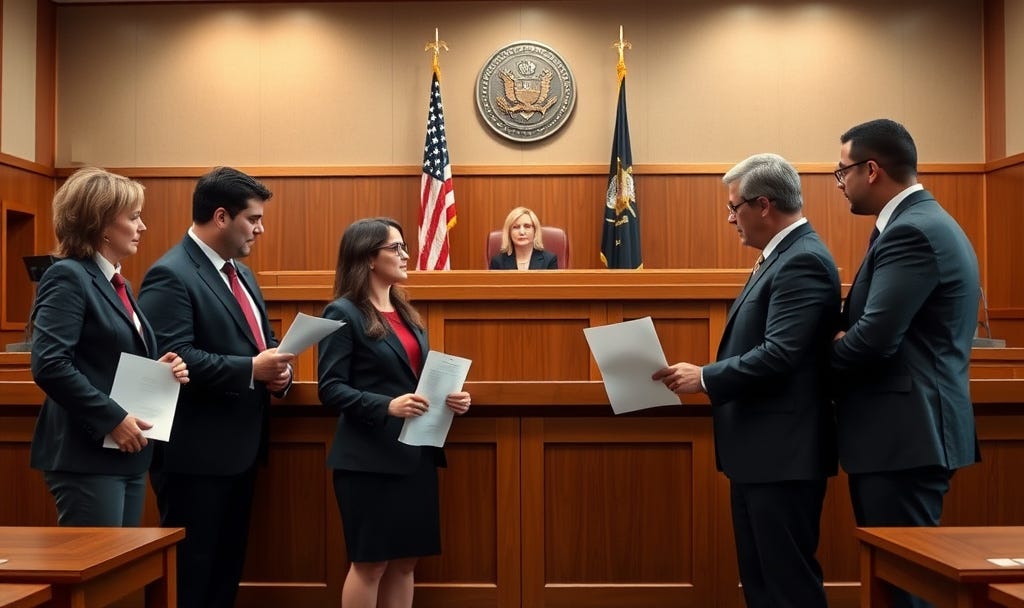IDEA and Section 504 trump state's “Anti-DEI” laws
What did a US federal judge find in a case in which recently passed state laws conflicted with education's IDEA obligations?
In a major win for students with disabilities, federal judge Landya McCafferty of New Hampshire ruled the state’s newly enacted “anti-DEI” laws cannot override local education agencies’ obligations under the Individuals with Disabilities Education Act (IDEA) and Section 504 of the Rehabilitation Act. The decision in National Education Association–New Hampshire v. New Hampshire Attorney General et al. (D.N.H. Oct. 2, 2025), temporarily bars the state’s education commissioner from enforcing the laws against four school districts—or any public entities that assist them in delivering a Free Appropriate Public Education.
The controversy centers on two New Hampshire state statutes in the section of the state’s laws about administrative services and education. The administrative services statute is RSA 21-I:112-116 prohibiting DEI-related initiatives, programs, training, policies and DEI-related contract provisions in public entities and the education statute is RSA 186:71-77 prohibiting analogous DEI-related initiatives and contracts in public schools including K-12 and publicly-funded higher education.
Both laws were adopted as part of New Hampshire’s House Bill 2 and effective 1 July 2025. These laws ban any activity that classifies or treats students differently based on certain characteristics, including disability, for the purpose of achieving “demographic outcomes.” The affected LEAs argued these prohibitions made it impossible to comply with federal special education requirements, which explicitly require identifying and serving students based on their disabilities (as reported here on Special Education Today in August 2025; see “Local education agencies say anti-DEI law disrupts IEPs: What if a state law blocks services for students with disabilities?”).
U.S. District Judge McCafferty agreed with the local education agencies and organizations, finding that New Hampshire’s newly enacted anti-DEI laws directly conflict with the Individuals with Disabilities Education Act, Section 504 of the Rehabilitation Act, and Title II of the Americans with Disabilities Act—each of which requires schools to identify, classify, and provide individualized instruction to students with disabilities. “The IDEA requires conduct that the anti-DEI laws forbid,” McCafferty wrote, noting federal law obligates schools to develop IEPs with disability-specific goals and accommodations. The court initially issued a Temporary Restraining Order on 4 September 2025, and then, on 2 October 2025, converted that order into a preliminary injunction, blocking the state from enforcing the anti-DEI provisions against the four plaintiff districts—or any public entities assisting them in delivering a Free Appropriate Public Education—while the broader legal challenge proceeds. Without the injunction, the state could have immediately halted public funding for districts found in violation, which Judge McCaferty determined would cause “irreparable harm.”
Although the decision stops short of blocking the laws statewide, it delivers a clear message: federal disability law takes precedence over state administrative laws. School systems cannot be forced to choose between compliance with state political mandates and their duty implement federal law to identify, evaluate, and serve students with disabilities. For now, at least, the IDEA and Section 504 obligations remain firmly in the driver’s seat—ensuring that access, not ideology, guides public education in New Hampshire.
Resources
Other sources have also reported on this story. Here are links to seven of them:
The National Education Association of New Hampshire was one of the plaintiffs joining four New Hampshire LEAs; it published a press release about the decision: “Federal court grants preliminary injunction blocking NH state law attacking diversity, equity, and inclusion: Law would have forced K-12 public school educators and colleges and universities to guess what was prohibited or risk loss of funding An image of the entrance of the US Court House in Concord”;
The New Hampshire American Civil Liberties Union, which was also one of the plaintiffs along with NEA-NH and the LEAs, published a press release: “Federal court grants preliminary injunction blocking NH state law attacking diversity, equity, and inclusion: Law would have forced K-12 public school educators and colleges and universities to guess what was prohibited or risk loss of funding”;
See National Education Association New Hampshire v. NH Attorney General (2025) from FindLaw;
The Pacer Monitor published the a summary and timeline of the case, “National Education Association-New Hampshire et al v. NH Attorney General et al“;
The Court Listener provided a recap of the case that included the documents submitted to the court: “National Education Association-New Hampshire v. NH Attorney General (1:25-cv-00293)”
Jeremy Margolis, reporting for the Concord Monitor and National Public Radio on 3 October 2025, posted, “Federal judge bars state from enforcing DEI ban on most school districts”;
Peter Greene of Forbes posted on 8 October 2025: “Federal Judge Blocks New Hampshire’s Anti-Diversity Law”



